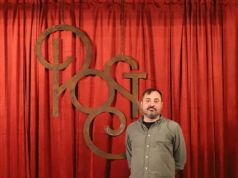A lot of great hip-hop is pumping out of Fort Worth. There’s a glut of conscientious, thought-provoking rappers in the 817 churning out intelligent, substantive material that rivals the output of bigger burgs known as hip-hop hotbeds. As far as talent goes, there’s certainly no shortage.
Recently, one of the Fort’s brightest artists, the socially conscious MC Da Deputy, dropped a new video for a track called “It’s Okay,” the latest single from his passionate and emotionally wrought 2018 album, Bear Your Soul. His moving tribute to his incarcerated brother is a nice achievement for the young artist and should help shine a light on his brand of soulful, hope-in-the-face-of-crushing-disillusionment, thematic stylings. The only problem is that any props to come from the video will be received more than 800 miles away at his new home in Atlanta – a move he made as a direct result of what he considered a flagging musical career here at home.
“I just felt like I’d reached a glass ceiling,” he said. “Fort Worth is a great music town, but rap isn’t the dominant form. It’s hard to make a name for yourself there. There are a lot of obstacles. I needed to find a place where I could be rewarded for the work I put in, and I found that here [in Atlanta] almost instantly.”
His thoughts echoed some sentiments expressed to me late last year by Juma Spears. At the time, the lyrically deft rapper had become so discouraged by the inconsistent local hip-hop scene that he almost hung up his mic for good, a painful decision that – despite a recent marquee set at Fortress Festival – he is still pondering.
To lose two of the city’s most talented rappers because they feel rudderless here must inevitably raise the question: Is Fort Worth a bad hip-hop town?
Spears has been in the local rap game since he was 17, “working in this city and seeing the struggle,” he said. “There are so few outlets for rap out here, especially since the Cellar and Grotto died. Fact is, we rappers out here are broke, plain and simple.”
Trying to make a career out of music is difficult, to say the least, regardless of genre, but it seems hip-hop artists have additional hurdles they have to overcome. I reached out to a handful of locals for their thoughts and heard some common complaints. A few noted the highly competitive and isolationist attitude among artists. Unlike the underground rock scene, which is built on networking, bands helping other bands, the impression from the people I interviewed is that, perhaps due to a much smaller pie, rap artists are less likely to lend one another a hand, especially across competing scenes.
“Fort Worth rappers act like [other artists] are taking money or people from their shows,” Spears said. “That’s never been the case.”
There’s also a flaky and noncommittal audience that is difficult to draw. With all of the bar/restaurant and cultural development in the city over the last decade, there’s plenty of competition for would-be patrons and their entertainment dollars. But the chief complaint, unanimously expressed by everyone I spoke to, was regarding the lack of places for rappers to play.
“I’ve found that if I can perform live in front of people who understand hip-hop, I can win them over,” said self-described hippie rapper Wrex (whose new EP Spring drops Wednesday). “The issue is getting in front of these people. There are some receptive venues in town, but they are few.”
Whether due to a fear of spotty turnout or suffering from outdated and ill-conceived stereotypes based on the angry nature of rap music – that it’s overtly violent – there’s a void of clubs in town willing to regularly build rap bills.
“Of course there are stereotypes,” said Smooth Vega, proprietor of noted talent buyer Premier Live and a veteran Northside rapper. “And, honestly, sometimes these rappers don’t do themselves any favors. You have a random show, some shit goes down, and other clubs hear about it, and they don’t want to deal with it. It’s unfortunate.”
Whatever the issues homegrown rappers are facing, lovers of hip-hop need to figure out a way to help address them before the Fort loses more of its sharpest talents.












